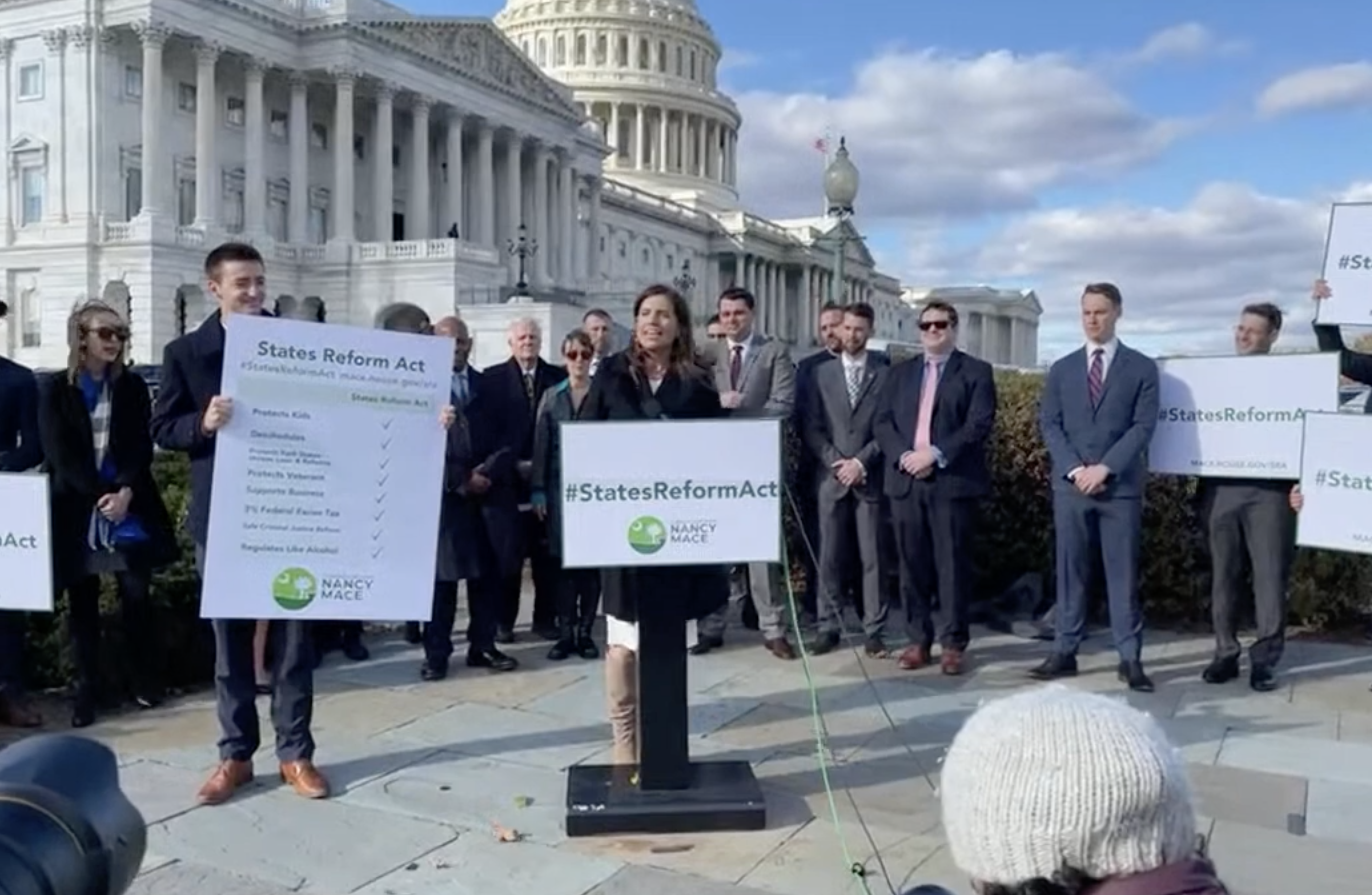House Republicans led by Rep. Nancy Mace (R-SC) on Monday unveiled a cannabis bill that is poised to compete with similar legislation proposed by Democrats earlier this year.
Dubbed the States Reform Act, the bill is being framed by Republicans as a compromise or middle-ground between the simple descheduling of cannabis and wide-ranging reforms sought by Democrats.
Along with striking cannabis from the Controlled Substances Act – a longtime goal of drug reform activists – the bill would seek to regulate the plant in the same manner as alcohol, imposing a 3% excise tax on sales. Under the reforms, states would be allowed to keep prohibiting cannabis and to continue regulating the drug as they see fit, a provision likely to appeal to advocates for states’ rights.
The cultivation of cannabis would be overseen by the U.S. Department of Agriculture (USDA), while pot products would be regulated by the Bureau of Alcohol, Tobacco, Firearms, and Explosives (ATF) and medical weed would fall under the purview of the Federal Drug Administration.
At a press conference outside the Capitol Building on Monday afternoon, Mace said her office has been working on the bill for the past nine months, and that it has already received “great feedback” from both sides of the aisle. Top Republican sponsors include Rep. Tom McClintock (R-CA), Rep. Brian Mast (R-FL), Rep. Peter Meijer (R-MI) and Rep. Don Young (R-AL).
“There’s so much in here for everyone,” Mace said. “Whether you are a Republican or whether you are a Democrat, there’s something in there for each of you.”
It’s a clean framework at the federal level. Most Americans will find something they can agree with in this thing, no matter where you land politically. #StatesReformAct https://t.co/aPfwsdsWtR
— Nancy Mace (@NancyMace) November 13, 2021
At the federal level, the bill would release people convicted of nonviolent cannabis offenses and expunge their criminal records. Those previously involved with organized crime or convicted of driving under the influence would not be eligible. States would have the freedom to decide whether to follow federal protocol when it comes to expungement and release.
The bill also includes provisions aimed at protecting veterans who use cannabis by ensuring they aren’t discriminated against by their employers, and that they don’t lose federal benefits. It allows doctors from the Veterans Administration (VA) to prescribe cannabis for medical use.
Mace said the States Reform Act would eliminate the need to pass the Safe Banking Act, a bill passed by House Democrats in April that seeks to protect financial institutions who work with state-licensed cannabis businesses.
“Businesses would operate and be legal and regulated just like alcohol, so that would not be an issue,” Mace said.
Mace’s legislative efforts are all but certain to clash with a separate Democratic push for federal legalization spearheaded by Senate Majority Leader Chuck Schumer (D-NY). In July, Schumer and senate colleagues Cory Booker (D-MA) and Ron Wyden (D-OR) introduced the Cannabis Administration and Opportunity Act.
The two bills have some things in common, though they diverge significantly when it comes to proposed tax rates and how tax revenue would be allocated.
Mace’s proposed 3% tax on cannabis sales, which would be frozen for 10 years “to ensure competitive footing in the market,” represents only a fraction of the 25.5% tax proposed by Democrats. And while Schumer’s bill seeks to reinvest tax dollars to repair the effects of prohibition on communities of color, Mace’s bill redirects those funds towards police training, re-entry programs, mental health services for veterans, fighting opioid abuse, preventing underage cannabis use and supporting small businesses.



